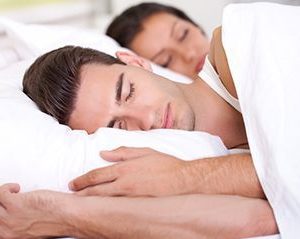- Could Your Grocery Store Meat Be Causing Recurring UTIs?
- Are You Making This Expensive Thermostat Error This Winter?
- Recognizing the Signs of Hypothyroidism
- 10 Strategies to Overcome Insomnia
- Could Artificial Sweeteners Be Aging the Brain Faster?
- Techniques for Soothing Your Nervous System
- Does the Water in Your House Smell Funny? Here’s Why
- Can a Daily Dose of Apple Cider Vinegar Actually Aid Weight Loss?
- 6 Health Beverages That Can Actually Spike Your Blood Sugar
- Treatment Options for Social Anxiety Disorder
‘COVID-somnia’ May Be Easing as Americans Report Better Sleep

Finally, more than two years into the pandemic, Americans are sleeping better.
A new survey from the American Academy of Sleep Medicine (AASM) found that 31% of people have had insomnia since the pandemic began. That was much lower — a 25% decrease — compared to the 2021 survey that found 56% of people were experiencing pandemic-linked insomnia.
“The stress and uncertainty of the coronavirus pandemic led to an increase in disruptions in our sleep quality and quantity,” Jennifer Martin, a licensed clinical psychologist and president of the AASM, said in an academy news release.
“While some people continue to experience subpar sleep, the good news is that the population is feeling the impact of ‘COVID-somnia’ less now than last year. For those still experiencing ongoing sleep problems, it may be time to speak with your doctor to determine the best course of action for improving your essential nightly sleep,” Martin suggested.
Among those surveyed who were still having sleep disturbances, 61% were having trouble falling asleep. About 47% were experiencing worse quality sleep, 39% were sleeping less and 33% were having more disturbing dreams.
The academy recommends that those having sleep problems try some “sleep hygiene” techniques:
- First, maintain a consistent sleep schedule. Get at least seven hours of sleep each night. Go to bed and wake up about the same time each day, including weekends.
- Turn off electronics. Avoiding screens, news and social media at least 30 minutes before bedtime can reduce stress, the AASM noted.
- Emphasize relaxation in the evening, unwinding for at least 30 minutes before bed with quiet activities, such as reading, journaling, meditating or taking a warm bath or shower.
- Your sleeping space should be cool, quiet, dark and peaceful with no TVs or phones.
- You may also reach out to your doctor about ongoing sleep struggles or contact a specialist at an accredited sleep center.
More information
The U.S. National Institute on Aging has more on getting a good night’s sleep.
SOURCE: American Academy of Sleep Medicine, news release, Nov. 30, 2022
Source: HealthDay
Copyright © 2026 HealthDay. All rights reserved.










